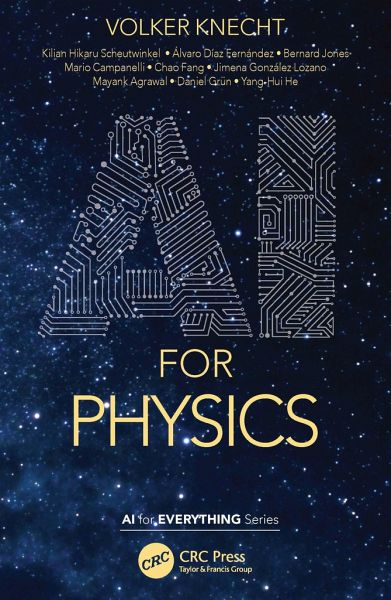certain knowledge in some of the applications of AI in physics, want to complete their view of the whole picture, and benefit from the big amount of good references spread along its lines, that make it easy to follow the reading with more specific texts."
-
Dr. Óscar de Abril, Associate Professor, Technical University of Madrid, Spain"Artificial intelligence is on a rapid path of revolutionizing science, upsetting long-established routines, and learning complex relationships in nature beyond what human minds can comprehend.
AI for Physics hits the nail on the head in explaining how that is possible and where the future may take us. A great read for scientists and anybody else curious about how soon computers will be smarter than us."
-
Michael Feig, Professor, Michigan State University"In an "afternoon read", this new book, aimed at non-specialists, intends to update its readers on the emerging applications of machine learning in physics. Without equations and derivations, the book provides an intuitive understanding of what seems to be going on, while simultaneously reviewing many of the exciting applications of ML in physics, ranging from the astronomically large to the femto-meter sized small. A wealth of references allows to all these topics further self- study. I can readily recommend the book to all scientists interested in how ML is already shaping the way of science. Graduate students will find it especially interesting to quickly get an overview if ML has already entered their chosen research topic."
-
Rudolf A. Roemer,
Professor, University of Warwick"Very well written, I have enjoyed reading it! "
-
Parimal Kar,
Associate Professor, Indian Institute of Technology Indore.




